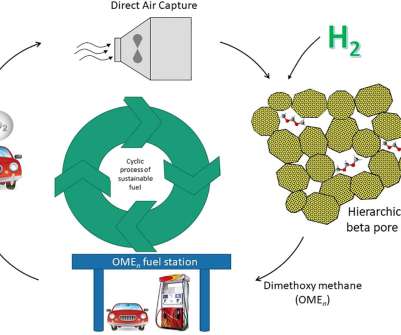WUSTL researchers demonstrate solar-panel-powered microbial electrosynthesis to produce n-butanol from light, CO2 and power
Green Car Congress
NOVEMBER 8, 2021
Researchers at Washington University in St. A team of biologists and engineers modified Rhodopseudomonas palustris TIE-1 (TIE-1) so that it can produce a biofuel using only three renewable and naturally abundant source ingredients: carbon dioxide, solar panel-generated electricity and light.














Let's personalize your content